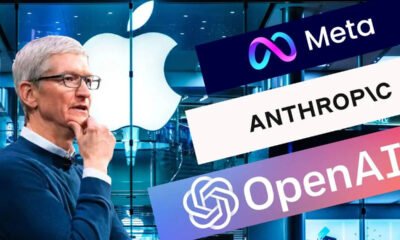- 53% of all UK SMB owners use AI tools for business advice – 60% of 25-34-year-olds
- 31% use TikTok, but this is nearly doubled among 18-24-year-olds
- Human emotion, experience and ethics are crucial
Half (53%) of the UK’s SMB owners are now using AI tools, like ChatGPT and Gemini, for business advice – but this is even more pronounced among younger entrepreneurs, where usage rises to around 60% among 25-34-year-olds.
Artificial intelligence is clearly serving as a brainstorming tool to verify what family and friends are saying, with 93% still trusting those individuals for business advice.
Worldpay, the company behind the research, says that young entrepreneurs are now redefining business advice, but it might not be such a good idea.
Classic internet search engines also remain a popular tool for 47% of the 1,250 UK SME business owners surveyed, but social media could soon outpace basic internet searches. YouTube (51%), LinkedIn (41%) and Facebook/Instagram (37%) are quickly gaining momentum, as is TikTok which sees a smaller 31% share of trust – but 60% among 18-24-year-olds.
However, where AI and social media advice falls short of human-sought advice is in limited context (such as industry-specific notes) and potential bias. Videos posted online can often push certain agendas or schemes that may not act in the interest of the young entrepreneurs.
They also risk over-relying on unverified sources and exposing themselves to unrealistic expectations set out by videos that specially curate only what the author wants to show.
“Entrepreneurs today must rely on both their personal networks and invest in the right tools to help their business thrive,” Worldpay GM for SMB International Chris Wood commented.
Thankfully, 93% are still relying on human peers for advice, which adds layers of emotional, experience and ethical that one-size-fits-all videos can’t offer.
In the end, a broader spectrum of information can only be a good thing, but young entrepreneurs must remember not to fully replace human advice with online, non-personalized sources.











































